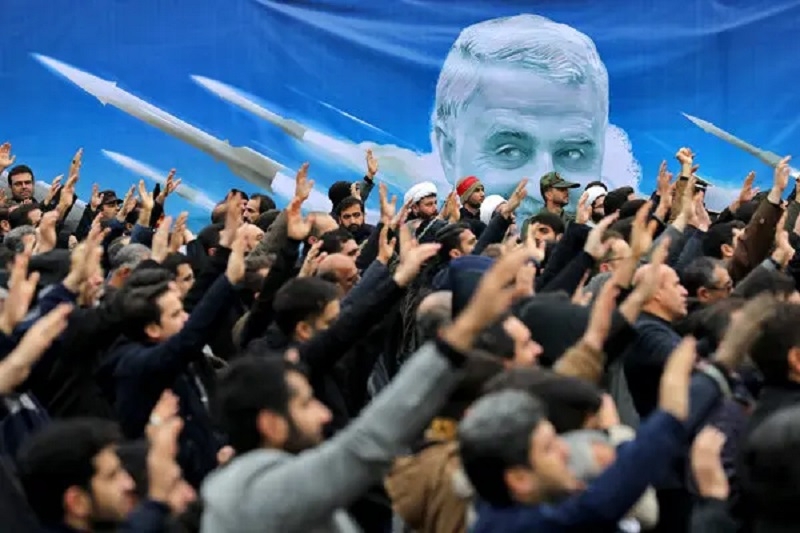RECKLESS
| Date :07-Jan-2020 |

WEST Asia is on the precipice. A dirty war between the United States of America and an equally defiant Iran is on the horizon. The hostility US President Mr. Donald Trump has exhibited by killing Iran’s top military commander General Qasem Soleimani is a sureshot recipe for disaster not just for US interests and people around the Middle East and other parts but also for the allies which are always unnecessarily dragged into a conflict that is never of their making. One more testing phase is staring in the face of the world. It needs to brace up for the deadly consequences of unilateral behaviour of on both sides.
The maverick US President might have earned massive brownie points back home, ahead of seeking another term in the White House but he has yet again left the US allies in lurch in the wake of an impending crisis. Tensions between US and Iran after Mr. Donald Trump’s withdrawal from the 2015 Nuclear deal carved out by like-minded European nations were palpable but in the vicinity of negotiations. As the world community laid out a roadmap for a patch-up between the two nations, both adopted a stubborn coat that escalated the problem till military action.
Tehran is at the receiving end of the US sanctions but it could have avoided some knee-jerk reactions. Seizing of oil tankers and an attack on Saudi Arabia’s oil establishments allegedly by Iran’s militia proved key turning points in the entire drama that finally resulted in General Soleimani’s execution. The US is following its tried and tested script which it played out in 2003 in Iraq. However, there was hope in the Iran situation going by the route Mr. Trump had followed while dealing with North Korea. That situation, too, had raised security concerns as both Mr. Trump and Mr. Kim Jong Un let off steam with warning of “locked and loaded missiles”. The US President later changed tack and entered negotiation mode through diplomatic channels.
Though there is no concrete word on North Korea’s denuclearisation promise, there are also no threats of an impending military action between the two nations. Security experts had expected a similar approach by the US President while dealing with the Iran problem. The unexpected turn Mr. Trump has taken looks more to satisfy his electoral promises rather than anything else. In the process, he has put a vast majority of nationals from many countries around the world in a major danger. Iran’s promise of “severe revenge” after the death of one of its top military heroes has been met with US threat of targeting 52 sites in Iran which are “at a very high level and important to Iran and the Iranian culture”. This war-mongering is not going to help any effort by international community that is engaged in de-escalating the hostilities between the two warring nations. Then again, history has proved time and again that the US has this propensity to desert its allies for its own gains.
The latest example is the sudden withdrawal from Syria where Washington abandoned the Kurdish forces who were helping it in the fight against the Islamic State. The Kurds were left to fight on their own on two fronts -- the IS and sworn-enemy Turkey. It was seen as an act of betrayal and also signs for the future for all the US allies. The Afghanistan story, too, has an overbearing stamp of US selfishness. Mr. Trump is in “advanced talks” of taking out the US troops from the war-torn nation, a move that will leave the poor country at the mercy of the growling Taliban militants under Pakistan’s influence. All these episodes have a clear message for India. It has to make its own choices rather than being a part of someone else’s strategy in regions of reckless conflicts. Of course it will a tight-rope walk for India.